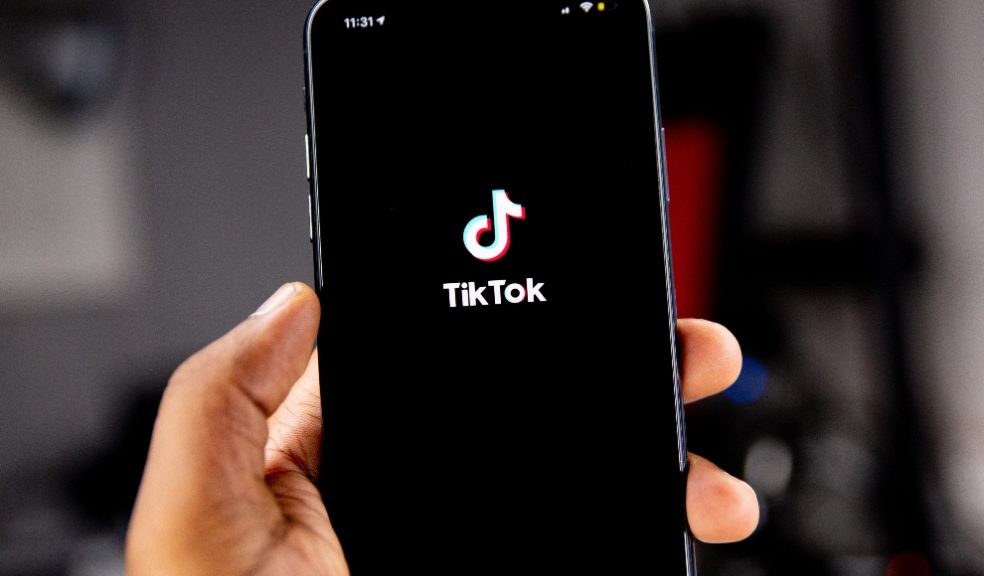
Graduate Creates TikTok To Share Interesting Tips To Save £1k This Year
Katie Yvonne, 22, from Telford, is on a mission to financial security with a zero-based budget. “If every penny is accounted for I know exactly what I’m doing.” Katie took to TikTok (@katiedoeslife) in 2021 to share her tips on how she is on track to save £1k in a year on an annual income of £4,128.
Previously spending approximately £720 a year on takeout coffees alone when at university, Katie wasn’t as money-savvy as she’s since trained herself to be.
ABC Finance spoke with Katie to find out more: “I started my savings journey after struggling during the pandemic last year. I graduated from university into an almost non-existent job market. In the end, I decided to start building my own business doing something that I'm passionate about which really helped.
“During this time, I really struggled with my finances and it really opened my eyes to how wasteful I could be with my money. It made me realise how unpredictable life is and this was a huge motivator for me wanting to always have money put away so that life can be more comfortable.
“Another huge motivator for me was growing up in a low income, working-class family. Not many people in my family have ever built up savings or invested in anything so I wanted to put myself in a position where I could create some more financial freedom and stability for myself.”
Katie is on a mission to uplevel her financial situation. She aims to have four active income streams by 2022, earn at least £500pm from her new business, create positive and intentional money habits as well as get closer to financial security.
Katie’s 10 Steps to Saving £1k
1) Get a money folder
These money folders trending on TikTok at the moment are a budget Filofax. They can be bought for £10 from Amazon.
“My money folder has been a lifesaver when it comes to building up my savings. I've found that whenever I save money in my bank accounts, I always dip into it whereas saving physical money has been so much easier. It makes those online impulse buys much harder to do because the money isn't in your bank!” Katie told ABC Finance.
2) Budget on paper
As soon as she gets paid she plans what she needs to spend on bills and essentials and the rest is placed in her savings wallet.
“When it comes to trying to create financial freedom and financial stability in our lives we have two options. We can increase our incomings and we can decrease our outgoings. I personally think it’s better to decrease your outgoings first so that you have more
of what you already have and then start increasing your incomings.”
“Look through your bank statements. Whether they are on paper or through your app or through email, have a look through them when they come through every month. Highlight them, annotate them, go through and see where you are overspending. I know this sounds like a really boring task to do, and it is I won’t lie, but it helped me really see where I was overspending.”
3) Opt for cheaper product alternatives
See if there are cheaper alternatives to products you purchase quite a lot.
“Many people believe that you have to miss out on nice things when you're saving but there are ways around everything. Shopping in cheaper supermarkets like Lidl/Aldi is always good because they often sell cheaper alternatives for more expensive products. I'm always
rushing to the reduced sections in the shops to see what I can get for some money off.
“Also,using things like coupons and offers. Coupons are your best friends when saving money! I also think that always having a meal plan is really important too so that you stick to your list rather than just buy random things, because this can end up getting pricey.” Katie told ABC Finance.
4) Delete apps that encourage spending
“Stuff like Boohoo. I take it off my phone unless I know I want something because those free delivery and 25% off notifications are too tempting and it’s not ideal if you weren’t going to spend the money in the first place.”
ABC Finance agrees with Katie’s recommendation and added: "Around 78% of Britons give into impulsive online purchases at around £33 each spend. If you give into temptation frequently or get newsletters from all your favourite brands, the costs can rack up quickly and you’re back where you started with zero savings.
“Eliminating the risk and unsubscribing can help keep your unessential purchases to a minimum and encourage you to buy on an ‘as needed’ basis.”
If you are going to spend online, according to Katie, a great app for online promo codes and discounts is Honey, a browser extension that searches the internet and applies discount codes with a click of a button.
5) Look around for a cheaper phone contract
“My advice when taking out a phone contract is to always pay an upfront cost, the higher the better! Not doing this is one of my biggest financial mistakes because I've ended up paying silly amounts of my phone bills. When my contract needs renewing I'm going to pay as much upfront as possible in order to bring the monthly payments down. It may feel like a big sum to lose in one go at first but the savings on monthly payments will be huge.” Katie told ABC Finance.
ABC Finance notes that with many phone contract deals, you'll usually end up forking out more than the price of your handset over the contract length. SIM-only contracts have become more popular over the last couple of years as consumers realise that you can get
much cheaper deals with a perfectly good handset.
6) Sell things that you no longer use
“If there is something you don’t use, whether it’s clothes, books that you’ve already read if they’re in good nick, sell them!” Katie said.
Did you know that the average UK household has around £400
worth of unused stuff lying around? Be critical when going through your things and really question if you will wear that top again or if you would benefit from the extra cash.
7) Split up your savings across banks
“I love the pots and spaces features in my Monzo and Starling banks. It makes it much easier to visually see where my money needs to go for direct debits, savings, paying others etc. It's been an absolute game-changer.” Katie told ABC Finance.
She has a business account, a bank account for her everyday personal use, a bank account where she stores all her savings and a bank account for sinking funds for holidays and Christmas.
The only card she keeps in her purse is her card for everyday spending. She keeps the rest in her money-saving folder.
Gary Hemming of ABC Finance agreed with Katie’s advice and added: “Organising your money in different places for different purposes helps you to keep track of where everything is and what money is going where. It makes your personal finances easier to manage with better visibility of incomings and outgoings.”
8) DIY when possible
You don't have to be excellent at crafts to save money when doing DIY and upcycling. Repurposing items or teaching yourself something you pay someone else to do frequently can stop your bank balance from seeing a huge dent. This way you can continue to do something
you enjoy and makes you feel good – cutting out everything you enjoy will make saving money harder to follow.
Pampering:
“I definitely believe that you can still be pampered even when you're saving up. I love doing my own brows, nails and hair to save money! My self-care Sunday routine is the highlight of my week,” Katie told ABC Finance, “Doing it at home means I can have it done
more often and it’s loads cheaper. I always colour my hair at home, I have done it since I started dying it. I just use box dye and I take really good care of it in between.”
Takeout coffee:
“When I was in uni I spent way too much money on iced coffee,” she told her TikTok.
ABC Finance spoke with Katie to find out more, she said: “While at university, I would probably spend about £60 a month on coffee, maybe more if you include the odd croissant or cake I would purchase too.”
Clothing:
“I used to just chuck clothes away if they had a hole in them. And now if I can repair them, I will and if I can’t I will cut them up and turn t-shirts into rags to clean with. It gives them an extra use and can save money in the long run.”
9) Save your pennies
Katie saves her cash and online pennies to build up extra savings. Katie told ABC Finance “I save my pennies both in cash and in my bank. I have a little pot for my pennies that I add to whenever my purse is feeling heavy with coppers. Then to save my pennies in
the bank I have the 'Save the Pennies' feature on in my two main banks. This rounds up payments so the pennies go into their own little pot. I also round up my money at the end of the week so if I have £82.30 on Sunday, I put the £2.30 in the pennies pot in my bank.”
Micro-saving with the likes of Monzo’s round-up feature makes it easier to save money over time. 10p and 50p savings become pounds and you end up setting money aside without even realising it.
10) Share, cancel or find free alternatives to your subscriptions
“I got rid of subscriptions I never used.” On subscriptions Katie needs, she has started sharing these with her family and friends to split the bills. She has saved £36 a year by getting the duo Spotify account with her sister.
“I was paying £8 a month for Kindle Unlimited, but they’ve given me three months for £1 so I would stay on their service,” she told her TikTok followers.
“Set free trial reminders. If I have a free trial I always put a reminder the day before on my calendar so that if I don’t want to continue paying for it I can remember to delete it.”
“You can always find cheaper or free alternatives. A lot of the information is online. I did this with the shreddy app. I just started doing workouts online instead because people put them up on Youtube, like Chloe Ting and Blogilates.”













